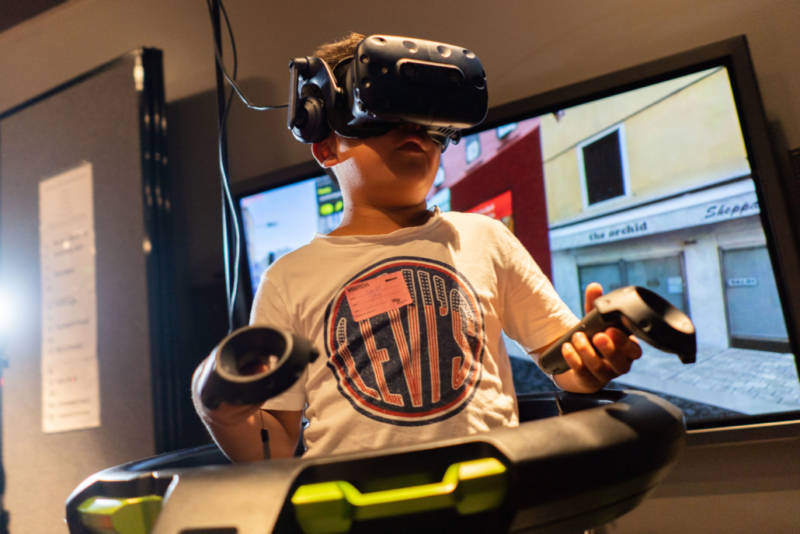Let’s see. Power shutoffs intended to stop a wildfire that didn’t stop a wildfire. Degraded air quality. Another potential massive power shutoff in the works …
Is this a good time to bring up the Bay Area Science Festival? We think so. Science can connect us with the natural world in ways that, well, uh … let’s just say there’s an obvious … need.
Also: It’s a lot of fun! To wit, below are some events that the KQED Science staff found the most intriguing out of the schedule of 50 offerings. The festival begins on Saturday, Oct. 26 and culminates a week later on Nov. 2, when 30,000 are expected to attend a “discovery day” of demos, games and talks at Oracle Park in San Francisco. …
Here are our top picks …
Danielle Venton, Reporter
50 Years Since Our First Step: What Do We Know about the Moon?
Nov. 1, 6-7 p.m. $5
Humanity has a love affair with the moon that stretches back to the dawn of our species. It was both a timepiece and a guiding light long before the first towers, roads or cuckoo clocks were built. Despite our intimacy with our closest neighbor in the solar system, the moon retains mysteries. Despite more than 50 years of probes and landings on the lunar surface, we still have much to learn about the moon’s origins, composition and eventual destiny.The past, present and future of the moon will be explored by Andrew Fraknoi in a non-technical talk at the Chabot Space & Science Center. Fraknoi has a flair for translating astronomy for the public and he has chosen a well-loved subject.
Cheryl Devall, Editor
Who Can Become a Scientist?
Oct. 26 6-8 p.m., Free
When someone says “scientist,” what image pops into your head? Does it look like anybody you’d see in your household … or perhaps your mirror? “Who Can Become A Scientist?” is an opportunity to ponder these questions among people who wonder the same. It’s a series of short films that reflect all the ways our differences can enrich scientific inquiry. After the screening, the filmmakers will engage in an audience discussion. This festival presentation by UCSF’s Wonder Collective takes place Saturday, Oct. 26, 6-8 p.m. at the Bluxome Center, 61 Bluxome St., San Francisco. Admission is free, though the organizers encourage preregistration.-
Science Day at the Consulate of Mexico
Oct. 26, 8-3 p.m., Free
Representatives of the land that brought us the concept of zero, an antidote for scorpion stings and other innovations are participating in this year’s Bay Area Science Festival in a big way. For the first time, the Mexican Consulate in San Francisco is hosting an open house during the festival with interactive exhibits in Spanish about the way our brains function, scientific illustration and space exploration. Scientists from UC Berkeley, UC San Francisco, NASA and other institutions will be on hand. Saturday, October 26, 8 a.m. – 3 p.m. at the consulate, 532 Folsom St., San Francisco.

